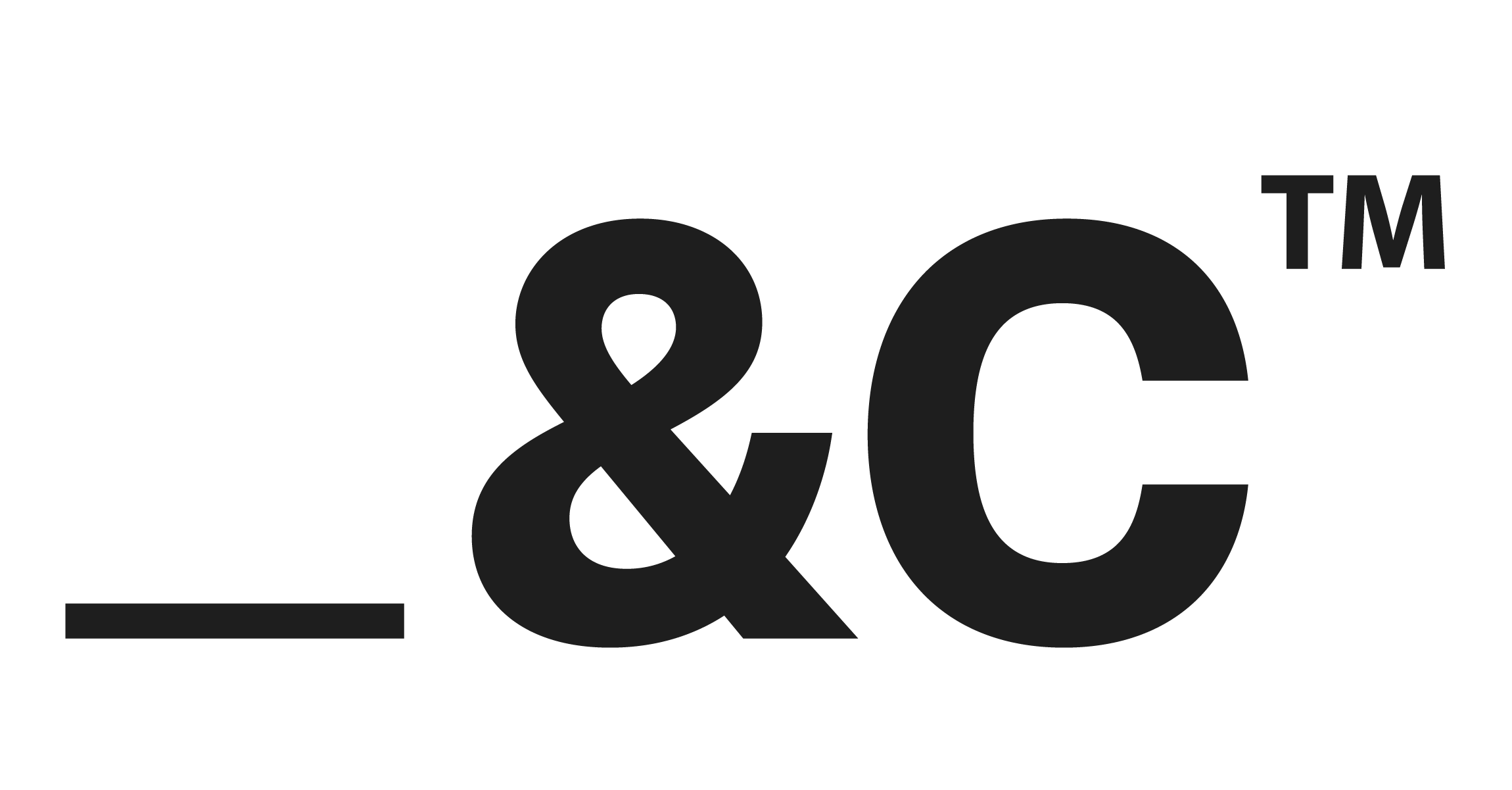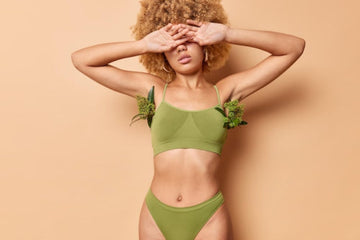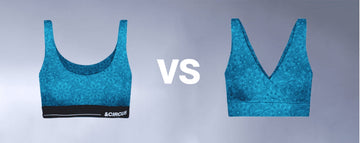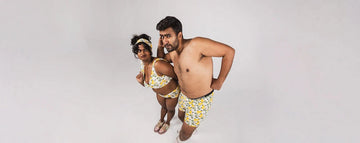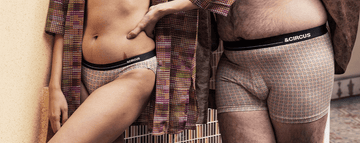Quick Listen:
In the crowded aisles of intimate apparel, where lace and satin once reigned supreme, a quiet revolution is unfolding. Bikini briefs, the understated icons of the 80s and 90s, are making a bold return not as relics of nostalgia, but as emblems of a sustainable future. As fast fashion's environmental toll becomes harder to ignore, brands are reimagining this classic style with eco-friendly materials and ethical practices, transforming the humble bikini brief into a symbol of conscious consumption.
Reviving Comfort and Style: The Sustainable Return of Bikini Briefs
Once a wardrobe staple, bikini briefs offered a perfect blend of comfort and understated elegance before being overshadowed by thongs and boy shorts in the early 2000s. Today, they're back, fueled by a growing demand for sustainability and a revival of timeless designs. Brands like AndCircus are leading the charge, crafting bikini briefs from organic cotton and bamboo, proving that eco-conscious fashion can be both chic and practical. This resurgence reflects a broader shift in how we view intimate apparel not just as clothing, but as a statement about values and responsibility.
The global women's underwear market is a dynamic force within the apparel industry, offering a vast array of products tailored to diverse needs and preferences. From everyday essentials like bras and panties to specialized options like maternity and sports underwear, the market serves women across all walks of life. Bikini briefs, with their versatile appeal, are carving out a significant niche, aligning with consumer desires for products that balance beauty, functionality, and cultural relevance, including the rising emphasis on body positivity and wellness.
A Sustainable Spin on a Timeless Design
The fashion industry's environmental footprint has long been a point of contention. Research from 2020 revealed that self-directed efforts by major companies to overhaul textile supply chains for sustainability often fell short, with greenwashing clouding genuine progress. To move beyond superficial claims, the industry needs robust policies standardized certifications, import controls, and eco-tariffs to drive meaningful change. The 2019 UK Parliament's Environment Audit Committee report underscored the need for systemic reforms, such as tax incentives for repair services, to make sustainable fashion more accessible. Against this backdrop, bikini briefs emerge as a surprisingly effective platform for innovation, their simple design lending itself to eco-friendly experimentation.
AndCircus is at the forefront of this transformation, producing bikini briefs with materials like organic cotton and bamboo, processed using low-impact dyes that minimize water and chemical use. These fabrics aren't just environmentally friendly they're softer, more breathable, and kinder to the planet than traditional cotton or synthetics. Other brands are joining the movement, incorporating hemp and recycled polyester to create briefs that prioritize both style and sustainability. A 2023 market analysis noted that women's seamless underwear, driven by innovations like seamless knitting and moisture-wicking fabrics, accounted for over 60% of market revenue, reflecting a growing appetite for comfort and performance.
Technological advancements are also reshaping the landscape. Breakthroughs in sustainable fibers and zero-waste production are setting new benchmarks, aligning with consumer demands for eco-conscious products. The rise of athleisure and loungewear has further expanded the role of bikini briefs, with applications in niche markets like maternity and postpartum apparel, catering to women seeking both practicality and style.
From Vision to Victory: Real-World Impact
AndCircus exemplifies how to blend sustainability with desirability. Their bikini briefs, crafted from bamboo and organic cotton, have won over consumers with their luxurious feel and ethical credentials. One customer described the experience as like slipping into a second skin that's doing good for the world. This enthusiasm reflects a broader trend: shoppers are seeking underwear that aligns with their values without sacrificing comfort or aesthetics.
Market trends support this shift. The seamless underwear market is thriving, with North America and Europe leading due to high disposable incomes and evolving fashion sensibilities, while Asia-Pacific is experiencing rapid growth fueled by urbanization and growing awareness of sustainable options. Bikini briefs are no longer just underwear; they're a canvas for conscious consumption, resonating with consumers who prioritize environmental and social responsibility.
Since the early days of sustainable fashion marked by milestones like the 1992 ESPRIT e-collection, designed by Lynda Grose the industry has evolved significantly. By 2005, institutions like Northwestern University Library began building research collections to meet growing academic interest in fashion's societal impact. Today, bikini briefs are part of this legacy, embodying the intersection of style, sustainability, and innovation.
Navigating the Challenges of Eco-Fashion
Transitioning to sustainable innerwear isn't without obstacles. Sourcing eco-friendly materials like organic cotton or recycled polyester often involves complex, global supply chains, which can be difficult to manage. Ethical production methods also carry higher costs, making sustainable bikini briefs more expensive than their fast-fashion counterparts. For brands like AndCircus, the challenge lies in persuading consumers that the premium price reflects long-term value for both their wardrobes and the environment.
Consumer awareness poses another hurdle. While younger generations are increasingly eco-conscious, many still lack a full understanding of fashion's environmental impact. The 2019 UK Parliament report emphasized the need for systemic changes, such as reduced taxes on repair services, to make sustainable options more viable. Without supportive policies, brands face difficulties scaling their efforts. Additionally, designing bikini briefs that are stylish, comfortable, and sustainable requires a delicate balance too often, one element overshadows the others, leaving consumers wanting more.
Seizing Opportunities for a Greener Future
Despite these challenges, the potential for growth is undeniable. The demand for sustainable innerwear is surging, driven by a cultural shift toward mindfulness and accountability. AndCircus is poised to lead this charge, with its eco-friendly bikini briefs appealing to consumers who value both style and substance. By investing in sustainable practices, brands can foster loyalty and stand out in a competitive market. The 2023 market analysis highlights how innovations in zero-waste manufacturing and sustainable fibers are redefining industry standards, meeting the growing demand for greener products.
Circular fashion offers another promising avenue. Imagine bikini briefs designed to be recycled, repurposed, or even composted at the end of their life cycle. AndCircus and similar brands are exploring these possibilities, paving the way for a future where underwear doesn't contribute to landfill waste. The financial benefits are clear: sustainable practices can drive long-term savings and strengthen brand identity, as consumers increasingly support companies that prioritize the planet. In regions like Asia-Pacific, where urbanization is boosting demand, the market for eco-friendly innerwear is expanding rapidly, offering brands a chance to capture new audiences.
A Lasting Legacy for Innerwear
Slipping into a pair of AndCircus bikini briefs feels like more than just a wardrobe choice it's a small but powerful act of defiance against the disposability of fast fashion. These briefs, crafted with care and conscience, embody a vision for a more sustainable future. Industry experts see sustainable innerwear as a growing force, with brands like AndCircus setting the pace by merging innovation with purpose. The return of bikini briefs isn't just a nostalgic revival; it's a bold step toward a world where fashion reflects our deepest values. So, the next time you reach for a new pair of underwear, consider the impact of your choice a sustainable bikini brief might just be the most meaningful fashion statement you'll ever make.
Frequently Asked Questions
What makes sustainable bikini briefs better than traditional options?
Sustainable bikini briefs are crafted from materials such as bamboo, hemp, and recycled polyester, often processed with low-impact dyes that reduce water and chemical usage. These fabrics are softer, more breathable, and environmentally friendlier than traditional synthetics, offering both comfort and ethical value in one stylish package.
Why are bikini briefs making a comeback in the sustainable fashion space?
Bikini briefs are regaining popularity not just for their nostalgic appeal, but because they offer a simple, versatile design that aligns well with sustainable fashion goals. Brands are reimagining this classic style using eco-friendly fabrics like organic cotton and bamboo, turning them into symbols of conscious, comfortable consumption.
What are the challenges and opportunities in producing sustainable bikini briefs?
Challenges include sourcing eco-friendly materials through complex supply chains and justifying higher production costs to consumers. However, growing awareness, supportive policy reforms, and demand for circular fashion present significant opportunities for brands to lead in a market that increasingly values sustainability and ethical transparency.
Disclaimer: The above helpful resources content contains personal opinions and experiences. The information provided is for general knowledge and does not constitute professional advice.
You may also be interested in: Market Data Shows Shift from Fast Fashion to Durable Innerwear
Uncomfortable underwear shouldn't steal your confidence. At Andcircus, we craft ultra-soft, sustainable Lenzing Modal Micro innerwear for every body, XS to 5XL. From briefs to bras, our custom packs fit you perfectly. Shop risk-free with our 100% satisfaction guarantee and embrace comfort that includes everyone. #LoveEveryBody. Shop Now!


